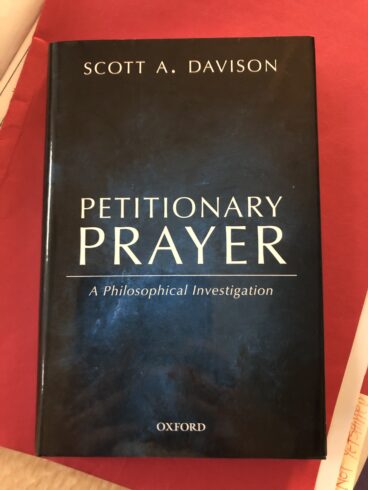I’m generally a pretty doubtful person. I don’t mean to be per se, and it greatly annoys my father when I argue with him about how we don’t know if werewolves or vampires are real because isn’t the lack of evidence just as good as evidence. He’s typically left sputtering that this isn’t the case, and I’m left laughing to myself because most of the time I’m pulling his chain.
I like to believe that these creatures exist (don’t ask me why), just as I like to believe that one day I’ll get my letter from Hogwarts or find a whole world in the back of my closet or go on an adventure with the Doctor in the TARDIS. Logically, I know these things do not exist, but strangely, I find more hope in these stories of fantasy worlds with people who are flawed but bring hope than I do in the Bible.
 Scott A. Davison became more doubtful later in life. Wondering if the prayers he sent to God when they were answered if it was really God. He “started to wonder if the truth might be more complicated, and this drove [him] deeper into theological and philosophical studies” (2). Thus the seeds for the book, Petitionary Prayer: A Philosophical Investigation, were planted.
Scott A. Davison became more doubtful later in life. Wondering if the prayers he sent to God when they were answered if it was really God. He “started to wonder if the truth might be more complicated, and this drove [him] deeper into theological and philosophical studies” (2). Thus the seeds for the book, Petitionary Prayer: A Philosophical Investigation, were planted.
Davison develops a new account of the conditions required for a petitionary prayer to be answered by employing the notion of contrastive explanation. With attention to recent developments in metaphysics, epistemology, and value theory, Davison survey the literature on this question. While the original title was “On the Pointlessness of Petitionary Prayer,” he did take a step back and realize he couldn’t support this conclusion philosophically.
He still has questions, as do most of us probably do, and this is not the extent of the research on petitionary prayer. Hopefully, this book will lead others to further investigation, to develop new arguments and new positions.
P.S. I’m still holding out on a trip in the TARDIS!
